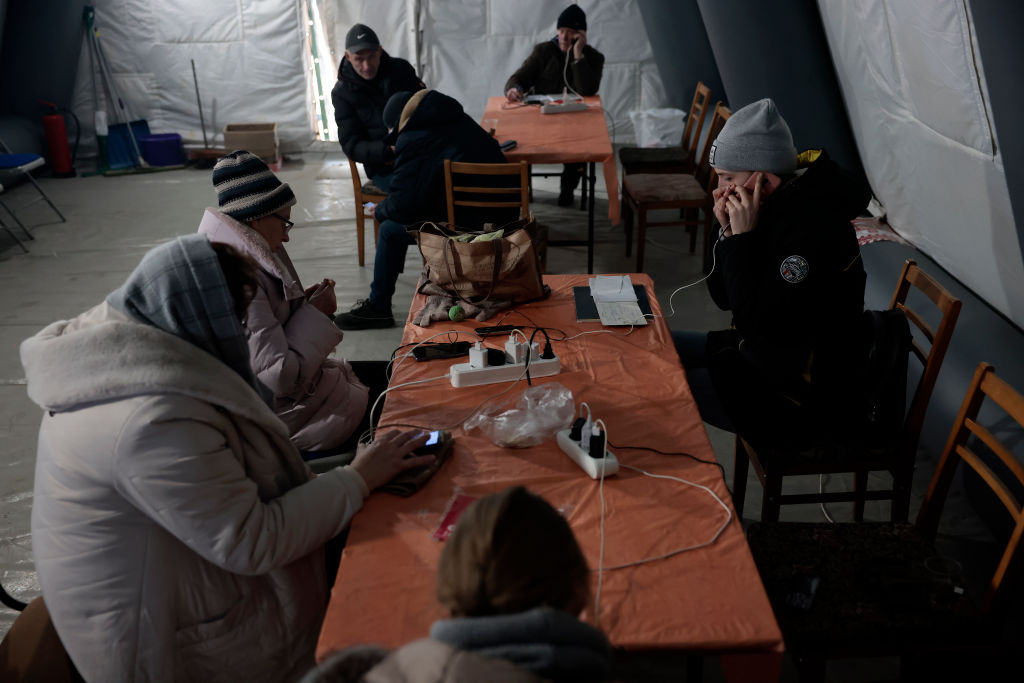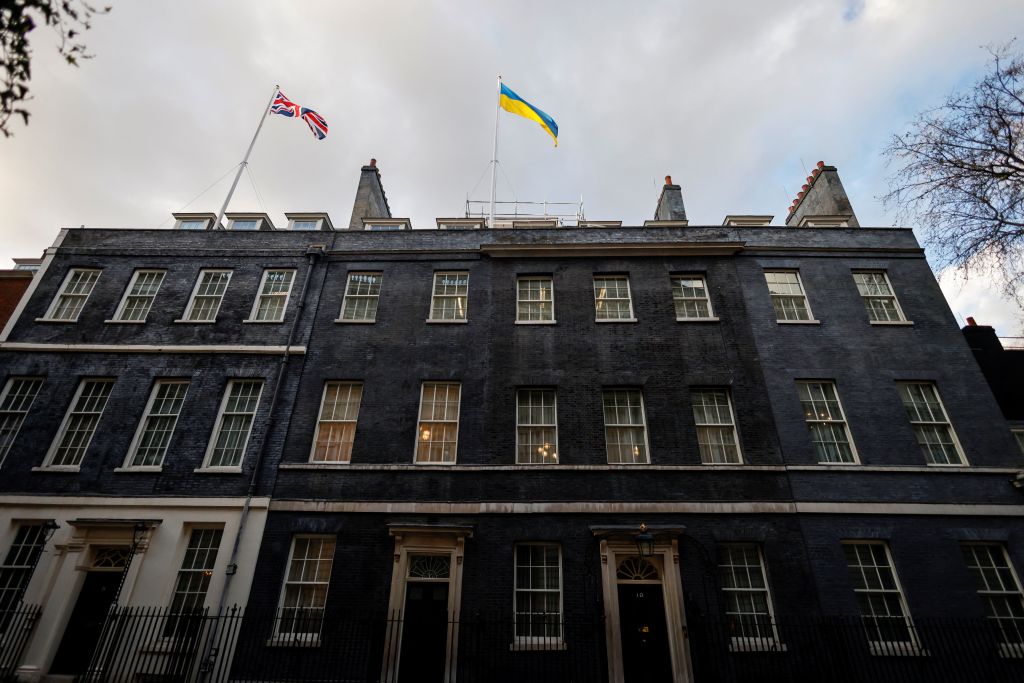This year, for the first time, millions of Ukrainians will celebrate Christmas on 25 December. The Orthodox Church had used the Julian calendar and marked the nativity on 7 January – but parishes are moving to a new ecclesiastical hierarchy, dropping ties with Moscow. The invasion has accelerated the forging of a distinct Ukrainian identity: a people united by spending winter without power or running water due to the Russian strategy of firing missiles at power stations and using the cold as a weapon against the general population. Moscow’s aim is to erode morale – and the will to fight.
Like much of Vladimir Putin’s strategy, though, this isn’t working. Ukraine has spent months preparing for this winter and the ordeal has, if anything, stiffened public resolve. Mobile electricity generators are powering hospitals and 4,000 ‘invincibility points’ have been set up to offer heat, power or wifi. Blankets and torches are being bought as Ukrainians prepare to see in the new year in darkness. The public mood is a peculiar but widespread confidence that, if they can get through winter, victory will arrive with the spring. There is a new saying in Kyiv: ‘Without electricity, but without Russia.’

Despite talk of the West’s weakness, the democratic world united immediately in defence of Ukraine
None of this could have been imagined at the start of the year, when Ukraine seemed to be there for the taking. It’s often said that Putin’s invasion was crazy, but he had every reason to expect a quick victory with few serious consequences. He had, after all, annexed Crimea with minimal censure in 2014, then started a war in the Donbas with 15,000 deaths – and barely a word said in the West. The Minsk II agreement, brokered by France and Germany, seemed to formalise the sellout: Europe would take cheap Russian gas and look the other way in order to get it. Back at the start of the year, Putin’s massing of troops at the Ukrainian border led to talk of further concessions to Russia.
There was a trend that Putin would mention at length in his rambling speeches: he saw the West as weak and decadent, having lost faith in its own culture and values, and being unwilling to agree on, let alone fight for, anything. He found little evidence of principles being defended. It was easy to buy up the likes of Gerhard Schröder via Gazprom contracts, as Germany built a second pipeline to Russia for yet more cut-price gas in defiance of protests from Washington. Europe seemed split and Ukraine weak, under an actor-turned-president. The British military, which had been training Ukrainian soldiers, would come back from trips to Kyiv in despair at the lack of preparedness.
It now emerges that Ukrainians had been showing fake plans to the British, fearful that their real defence plans would be leaked. A 20th-century invasion has met a 21st-century defence, with stunning results. Volodymyr Zelensky morphed into an inspiration leader. His answer to America’s offer of evacuation – ‘I don’t need a ride, I need ammunition’ – changed world history. Had he chosen to flee, we could now be talking about which Baltic state was next on Putin’s list.
A turning point was reached at that moment, and we ought not to overlook this as we reflect on the year. For all the talk of the West’s weakness, the democratic world united – immediately – in the defence of a country that most would have struggled to place on the map. The West’s stance was decided by mass popular opinion, not by a diplomatic summit. Germany’s decision to aid Ukraine was made while crowds thronged Berlin with placards saying: ‘Rather a cold shower than Putin’s gas.’ We saw, this year, a bottom-up foreign policy: a demand for solidarity that no democratic leader could resist.
This wasn’t just apparent in the protests. Families have opened their homes to refugees on a scale never before attempted or even envisaged: 65,000 in Ireland, 145,000 in Britain, 1.2 million in Poland. The spontaneous offering of millions of bedrooms – even from families on tight budgets – showed the kind of unity that many thought had been left behind in another era. Generations who have never known war have sided with Ukraine, mindful that freedom exists because, every now and again, people give their lives to defend it.
As we have seen, to talk about ‘the West’ is out of date because Asian democracies have joined in, making the sanctions regime global. Japan cast away a Russian rapprochement strategy that had been decades in the making. South Korea, Singapore, Australia and others rallied around – mindful that the cause is not just Ukraine’s sovereignty but the protection of democracy. Aggressors the world over will look at Russia and see the unexpected cost of annexation. There is no formal structure to this new global alliance: it was spontaneous, and spectacular.

And it is holding firm. The Ukrainian flags that hang from churches, pubs and houses in Britain’s towns and villages do, of course, represent a country. But they also represent something more: a shared cause, a shared fight. If Ukraine falls, then much of the international rules-based order falls with it. Ukraine’s flag flies above the door of 10 Downing Street this Christmas, with the Union Flag beside it. Ordinarily, this would seem bizarre – but in these circumstances it’s entirely fitting.
The democratic world did not, as Putin expected, fold when he attacked. Inspired by Ukraine, it has found a collective strength and purpose that no one could have predicted at the start of the year. Just as the siege of Vienna in 1683 was a turning point for European history, this may prove to be the point when a global democratic order emerged – and the gates of Kyiv held.






Comments